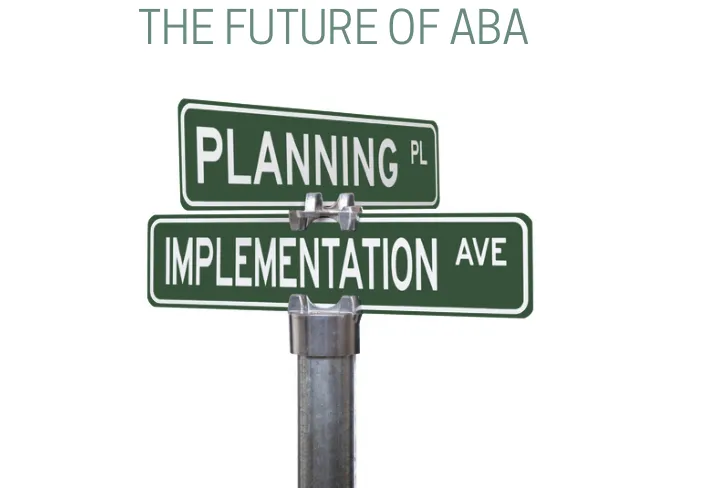
Designing for Generalization Not Mastery
The RISE Model That Helps Parents Thrive
“He only listens to you.”
How many times have you heard that?
Or maybe you’ve watched a client master skills in the clinic—only to “leave them at the door” when they get home. Despite data showing acquisition and fidelity, the family still feels like nothing has changed.
You’re not alone. And neither are they.
Why Generalization Fails (and Why It’s Not Your Fault)
In a perfect world, our beautifully structured behavior plans would transfer seamlessly from the therapy room to the real world. But most parents are juggling work, dishes, baths, bedtime, and burnout. They’re not just implementing plans—they're surviving their day.
“These parents hear all about their child’s progress. But they don’t feel the progress.”
And as professionals, we often hand over visuals, homework calendars, and reinforcement schedules—expecting generalization to just happen. But unless we design for it, we’re setting families up to fail.
This course was created to change that.
Generalization Can’t Be an Afterthought
Research is clear: generalization hinges on one critical factor—effective parent training.
But traditional parent training has its limits:
It happens in a vacuum (a quiet room, removed from daily chaos).
It relies on instruction more than modeling.
It’s often limited to an hour per week.
It’s usually built around our systems—not the family’s.
We don’t embed. We overlay. And overlaying one more thing onto a caregiver’s already overwhelmed schedule just doesn’t work.
Introducing the RISE Model: A Framework for Real-Life Generalization
That’s why I developed RISE—a four-step model that embeds skill-building into real routines with real families.
Routines
Start with what’s already happening—like bath time, brushing teeth, or lunch prep. No new materials. No new schedule. Just listen first.Interactions
Choose micro-skills that fit into those moments. You’re not adding tasks; you’re making tasks easier.Support
Offer context-based coaching. Think in-the-moment modeling, role-play with video, and feedback parents can actually use. Build fluency for them the way you would for a tech.Evaluate & Evolve
Track more than task performance—track caregiver confidence. Monitor drift. Adjust based on the family’s changing needs.
It’s not about doing more.
It’s about doing what works.
Because what works, sticks.
Case Study: Maya’s Bath Time Battles
Maya, a bright six-year-old autistic girl, made excellent gains in labeling and following directions at the center. But bath time at home was a meltdown minefield.
Her mom was doing everything right—same toys, same visuals. Still, nothing worked.
Using the RISE model, we focused on:
Routine: Bath time.
Interaction: A predictable, paired cue—“Time for bath!” with a transition visual.
Support: I coached mom via video reviews and in-clinic role plays.
Evaluate & Evolve: Weekly check-ins revealed a dip in consistency during a family visit. We tweaked the plan, reinforced old strategies, and within days, bath time was smooth again.
Her mom’s words?
“This was the first time a strategy worked for both of us.”
That’s not about compliance. That’s about connection.
But What About Your Maya?
Think of a client you’re supporting right now. One who’s doing well in structured sessions but struggling at home.
Ask yourself:
What’s one routine that already happens every day?
What’s one skill that would ease that routine?
How can you coach the caregiver in context?
How are you tracking sustainability, not just mastery?
Ready to Learn the Full RISE Framework?
This 1-CEU course walks you step-by-step through how to embed generalization into your plans from the beginning. You’ll get:
✅ A printable guidebook with planning tools
✅ Templates for routine inventories and fidelity tracking
✅ Strategies to build buy-in, reduce resistance, and fit real life
✅ Powerful case studies and implementation checklists
✅ BONUS: Links to open-access research on embedded parent training
🔗 Enroll Now at MasterABA.academy
Generalization isn’t magic.
It’s a design choice.
References
Bacotti, J. K., Peters, K. P., & Vollmer, T. R. (2022). Parents Are People Too: Implementing Empirically Based Strategies During Daily Interactions. Behavior analysis in practice, 15(3), 986–1000. https://doi.org/10.1007/s40617-022-00686-9
Yi, Z., & Dixon, M. R. (2020). Developing and Enhancing Adherence to a Telehealth ABA Parent Training Curriculum for Caregivers of Children with Autism. Behavior analysis in practice, 14(1), 58–74. https://doi.org/10.1007/s40617-020-00464-5
Shawler, L. A., Senn, L. P., Snyder, K., & Strohmeier, C. (2022). Using Telehealth to Program Generalization of Caregiver Behavior. Behavior analysis in practice, 16(4), 1–12. Advance online publication. https://doi.org/10.1007/s40617-022-00766-w
